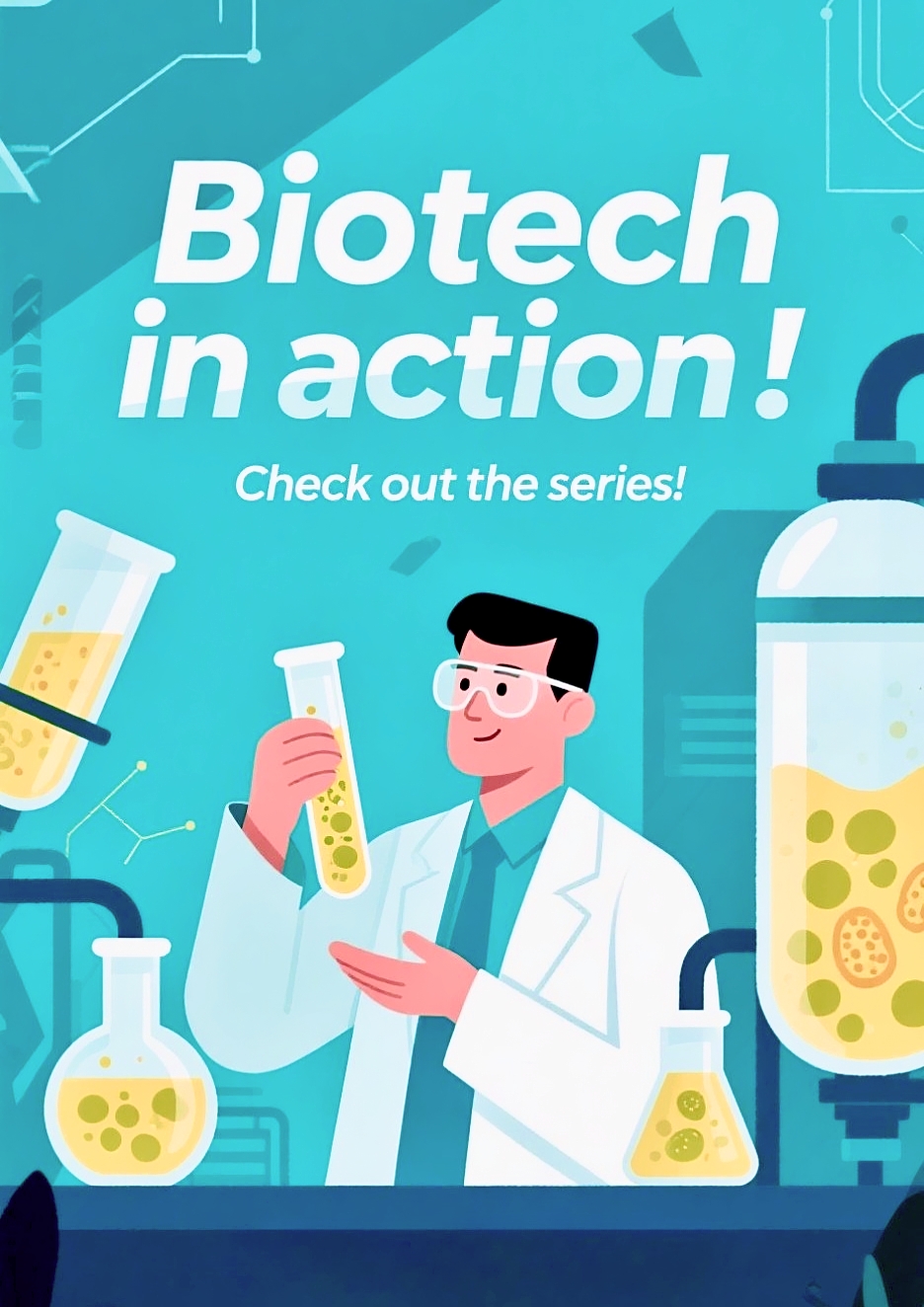Featured Student: Peipei Zhong
November 7, 2025
November 7, 2025

I’m studying Biochemistry and expect to graduate in April 2026.
As an international student without many local connections, I value having a reliable platform for work opportunities and professional guidance.
The Co-op program provides both: not only does it connect me to meaningful placements, but it also offers support from coordinators and mentors. For example, my Coordinator advised me on how to frame areas of growth during interviews by focusing on what I’m actively working to improve. This kind of support has been invaluable.
I worked at Lallemand Inc. as a bioprocessing intern and worked on application testing with bio-ingredients in biotechnology.
This role served as a bridge between yeast extract R&D and product management. I independently managed all aspects of the lab work for my supervisor, including literature review, protocol development, scaling calculations, scheduling, experimental design and execution and fundamental data analysis.
One of my proudest achievements was authoring the department’s first Biotech Intern Manual (24-pages, 10,000+ words) and creating four educational videos about what my role mainly deals with.
Alongside these, I completed an independent project (with report, poster and presentation) and supported more than five auxiliary projects, to which I contributed precise, high-quality data (with an average standard deviation of just 0.0005).
Here are the educational video links: https://youtube.com/playlist?list=PLkVmrXjuJE7gxXzW9inRLXs27CEv73nd_&si=eItzoI6SSfy5zGI7
My best day was when our lab team gathered for a pool party at a supervisor’s house, where we shared both work and life experiences. I found the conversations inspiring. They gave me a clearer sense of how I could contribute more meaningfully during my internship. For example, I later developed an intern scheduling Excel, inspired by other lab’s management approaches.
My favourite experience was benchmarking through microplating, where I can compare the performance of different microbial strains across company products.
This not only gave me scientific insights into strain characteristics, but also broadened my understanding of the industry and business competition: how product performance links to specific components and what sets the best products apart. It gave me the chance to apply what I’d learned, think creatively and see the impact of my work.
The challenges came in stages.
At the beginning of my internship there was no structured training protocol, so I created my own. I documented my daily schedule and experimental steps, reflected on mistakes and refined my approach.
This process helped me connect scattered tasks into a clear, systematic overview of my role across projects. Later, as I became more confident technically, the challenge shifted to deeper R&D tasks such as bioprocess optimization, including adjusting bacterial culture conditions to maximize specific metabolite outputs.
That transition from assessment-style work to more research-driven problem solving was very exciting. This required integrating multiple skills: experimental design, literature review, rapid learning of new concepts and analytical tests, as well as drawing conclusions through statistical analysis and software tools. Overcoming this stage taught me how to think like a researcher rather than just a technician.
I create rest with a complete nighttime routine: taking a shower, doing skincare, wrapping myself in a scented quilt and watching stand-up comedy.
This helps me relax and get consistent sleep, which keeps me energized for both work and study.
Co-op helped me grow by showing me that managing life is much like managing projects.
By using resources proactively and collaboratively, staying organized and building the right skills, I handled more responsibilities with confidence. This gave me the chance to contribute to process improvements and increase my impact in meaningful ways.
Co-op shaped how I think about science, not only as discovery, but also in terms of customer needs, product optimization and real-world impact.
Early in our careers, opportunities often come through skills and interviews, but over time they come from the trust we build and the impact we deliver. Co-op gave me the foundation to develop both.
All of the preparation resources, including workshops, practice interviews and question lists, were very helpful. I’ve come to see that getting a Co-op position is not the end, but rather the beginning of a larger journey.
What I value most is the sense of community: being able to connect with people from diverse fields who all share the same goal of supporting students in taking their first professional steps. For example, the Co-op podcast was especially meaningful to me, as it provided real stories and advice that helped me navigate challenges and stay motivated. These experiences not only strengthened my skills but also gave me a stronger sense of direction and belonging as I prepare for my future career.
Make reflection a habit.
Writing my work report and updating my CV was much easier, because I had kept daily, weekly and monthly notes on what I learned and accomplished.
Reflection not only makes reporting smoother, but also helps you track your growth and see how far you’ve come.
I’m looking forward to graduate school, where I hope to build on my computational skills and integrate them with my biochemistry background to tackle practical human health challenges.
We honour xwməθkwəy̓ əm (Musqueam) on whose ancestral, unceded territory UBC Vancouver is situated. UBC Science is committed to building meaningful relationships with Indigenous peoples so we can advance Reconciliation and ensure traditional ways of knowing enrich our teaching and research.
Learn more: Musqueam First Nation